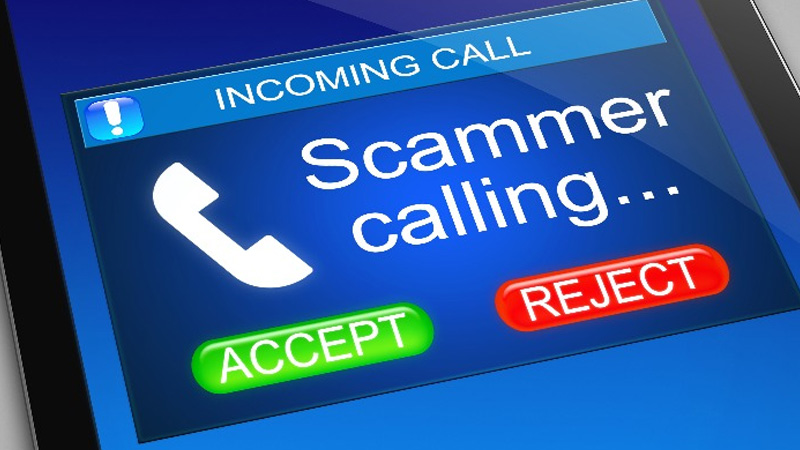3 Most Popular Phone Scams and How to Avoid Them
Phone scams are a growing problem, with many people falling victim to fraudulent calls and losing money as a result. In fact, in the USA alone, an estimated 68.4 million people reported losing a total of 39.5 billion USD to phone scams in the past 12 months, according to Truecaller, a caller-identification app.

3 Most Popular Phone Scams and How to Avoid Them
Phone scams are a common occurrence and can happen to anyone. However, they have grown from being a nuisance and annoyance to becoming an epidemic that threatens the financial security of countless people.
Scammers often target the elderly, who are more likely to be vulnerable than younger people. They also tend to prey on people with low self-esteem or poor mental health and those unaware of their rights. They will try anything they can think of in order to get you to give away your money and personal information.
While many scams can be avoided by simply being aware, some are more sophisticated and difficult to spot. Phone scams often use fear or urgency as a tactic to push people into making quick, often expensive decisions. But if you can keep your head and think rationally, you’ll be able to avoid being taken for a ride by a scammer.
In this article, we will tell you about the three most popular phone scams and how to avoid them!
1. Jury Duty Scam
How It Works
This is a common phone scam, and it works by preying on your fear of getting in trouble with the law. In this scam, you get a call from someone claiming to be from your local court or law enforcement agency, and they tell you that you missed jury duty. They will arrest you if you don’t pay a fine right away.
The scammer then asks you to pay with gift cards or wire transfers. The call might sound convincing because they often use fake names, phone numbers, and caller ID information. They also may have some personal information about you that makes it seem like they are legitimate.
The truth is that no one from the court system will call you and ask for payment in this way. If you did miss jury duty, the court will send you a formal letter in the mail, not try to contact you over the phone.
Protect Yourself
The best way to avoid getting caught in this scam is to simply just ignore any calls like this. If you do get a call, hang up immediately and report it to your local court or law enforcement agency directly using the number on their website.
If you are worried about your jury duty obligation, it’s best just to go online and check the court’s website for information. You can also call them directly to make sure that you are not on any kind of list for skipping out on jury duties.
2. Police Department’s Number on the Caller ID
How It Works
This scam is fairly simple; you will get a call from what looks like the police department’s phone number on your caller ID, but it is not really them. The caller claims that you have an active warrant out for your arrest and attempts to scare you. The scammers may even provide a badge number and other information about the supposed officer’s identity.
They will then prompt you to call back at a different number, which is the real scammer’s number. If you do not call back, the scammers will say that they will send a police officer to your home to arrest you.
Once you dial the number, they ask you to give them money for the warrant or promise not to arrest you. Scammers may also threaten residents with jail time if they don’t make an immediate payment.
Protect Yourself
If you receive a call, do not provide any personal information; also, don’t call back at their provided number. Instead, hang up and report the incident to your local police department or by calling the non-emergency line. You can also contact your local police department directly to verify if they are attempting to contact you on an active warrant.
3. Impersonating Police Officer Scam
How It Works
In this scam, the scammer may call you or leave a message claiming to be a police officer or other authority figure. The callers may even provide an officer badge number or other personal details, but in reality, it is all just a ruse.
They will claim that you are in trouble with the law or that they are conducting an investigation into your activities. They will ask for your personal information, including credit card numbers, social security numbers, and other sensitive information. If you refuse to provide the information they request, they may threaten to arrest you. Scammers often use this scam as an opportunity to steal your identity, so be careful.
Protect Yourself
If you receive a call from someone who says they are with the police or another law enforcement agency, never provide any personal information over the phone. If possible, hang up immediately and call the police department directly to verify if they were indeed involved in the matter.
If any of your information they needed, ask them to come to your home or office in person or you can go to the police station in person so that you never have to give out any information over the phone.
Conclusion
The truth is, that people of all ages and income levels experience phone scams. This is why it’s important to be aware of your surroundings and not fall for scams that are so common today. The three scams outlined above are probably some of the most popular these days. However, there are other types of phone scams out there that can be even more damaging than these common ones.
So, what’s the best way to avoid falling victim to a phone scam? It might actually be surprisingly simple: When in doubt, hang up. That is unless you’re sure that you know for certain who you are talking to and why. Don’t give out personal information or credit card numbers over the phone unless you have a good reason for doing so. And, of course, never wire or give money to anyone who has solicited your funds over the phone (regardless of what they tell you).
References
- https://www.komando.com/security-privacy/3-dangerous-phone-scams/849040/
- https://www.aarp.org/money/scams-fraud/info-2019/phone.html
- https://www.thestar.com/business/2017/08/21/three-top-phone-scams-and-how-to-avoid-falling-for-them.html
- https://money.usnews.com/money/personal-finance/family-finance/articles/most-common-phone-scams
- https://www.wikihow.com/Avoid-Phone-Scams
- https://www.today.com/money/5-most-common-phone-scams-how-avoid-them-1C8368359
- https://www.businessinsider.com/phone-scams-robocall-spoofing-2019-4
- https://www.securityinfowatch.com/cybersecurity/article/21271492/the-top-3-scams-targeting-mobile-phones
- https://www.truecaller.com/blog/insights/truecaller-insights-2022-us-spam-scam-report
- https://www.newsweek.com/ten-common-dangerous-phone-scams-you-should-know-about-1711016
Written by The Original PC Doctor on 4/9/2022.






















































































thanks for that